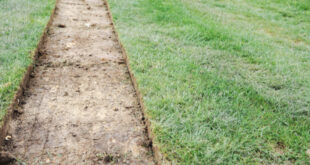Thirty-four projects aimed at combating pollution, water degradation, improving health outcomes and increasing public engagement in some of California’s most pollution-burdened communities recently received word from the California Environmental Protection Agency (EPA) that they will share in $1.5 million in environmental justice grants. The 34 grants announced in this cycle set a new record for the largest number of Environmental Justice Small Grant awards since the program was established by Assembly Bill 2312 (Statutes of 2002, Chapter 994) in 2002.
“These grants put money where it is needed most, in communities disproportionally affected by pollution,” said California Secretary for Environmental Protection Jared Blumenfeld. “Our goal is to give people a voice in the decisions affecting their environmental future so that they can help develop real-world solutions locally and across the state.”
The funded projects are far-reaching and include:
- Air, water, and soil quality testing and remediation projects
- Identification and protection of California Native American tribal resources
- Increased education and outreach to marginalized communities
- Organic agriculture training and pesticide exposure education for farmworkers
- Research and mitigation of suspected environmental contamination and exposure on tribal lands
Examples of water-related testing and remediation projects and funding amounts from CA EPA include:
- The California Indian Environmental Alliance (CIEA), $50,000 — San Francisco and San Joaquin counties, will provide support to 86 Northern California Tribes to regionally designate traditionally used water bodies with the new statewide beneficial uses definitions: ”Tribal Subsistence Fishing” and “Tribal Cultural Uses.” Tribes will work collaboratively to prepare for and to establish numerical water quality objectives by consensus through the Triennial Reviews of the North Coast, San Francisco Bay, Central Valley and Pacific Ocean Basin Plan Amendments. CIEA will work with Tribes to identify traditional fishing locations, rates of fish consumption, and exposure to toxins through cultural practices, share strategies, and promote participation in regional water board hearings. CIEA will be guided by a Tribal Advisory Committee made up of, at minimum, two Tribes from each of the four regions.
- Community Water Center (CWC) Monterey County, $30,000 — CWC will provide education, outreach, leadership development, and organizing support to low-income, predominantly Latino communities in the Central Coast for the development of community-driven solutions and to foster effective community participation in decision-making processes to provide safe and affordable drinking water for all. Many of these communities include farm-worker families and many are either monolingual Spanish or limited English speakers that do not have access to safe, clean and affordable drinking water. CWC will connect residents with resources, such as replacement water programs and private well testing. CWC will also establish a regional coalition to address drinking water issues in the Central Coast.
- Pueblo Unido CDC in Riverside County, $45,030 – The agency will be developing a consolidation action plan for water and sewer infrastructure to provide safe, clean and affordable water to 15,000 low-income farm workers living in small 12-unit mobile home park villages not served by municipal water and sanitation services in the Riverside County’s Eastern Coachella Valley. These farm worker villages depend on small water systems, private domestic wells and septic systems that do not meet state requirements for water quality. Pueblo Unido will conduct home visits to survey farm worker residents about what type of water system residents currently use, what type of septic systems they use, and contaminants in their drinking water systems. They will use this data to build a bi-lingual Spanish/English public awareness campaign, conduct four community planning meetings, and develop a consolidated water and sewer infrastructure plan for the community. Pueblo Unido will also promote resident participation in the Riverside County Housing Review Committee Advisory Council and the Coachella Valley Water District’s Disadvantaged Communities Infrastructure Task Force, to address the community’s infrastructure issues.
Funding from CalEPA’s Environmental Justice Small Grants Program is available to nonprofit and tribal organizations throughout the state. Projects are scored based on pre-established criteria including project need and benefits to disadvantaged and vulnerable communities as identified by CalEnviroScreen or through other methods. To see the full list of the most recently funded projects go to: https://calepa.ca.gov/envjustice/funding/smallgrants/2019-environmental-justice-small-grants-project-summaries/.
 California Water News Daily Your Source For Water News in California
California Water News Daily Your Source For Water News in California


